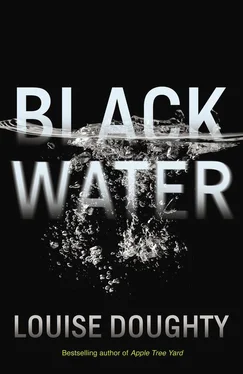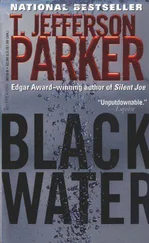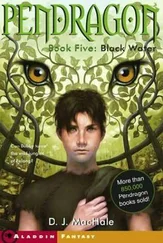At other times, he dressed in his beige slacks and a shirt, combed his hair with pomade and pressed a panama on top and went hanging out in the bars frequented by the foreign press. Once, he even encountered a man he was sure had been amongst the Australian television crew — but with Harper in Western clothes and speaking immaculate English, there was no flicker of recognition from the Australian, to whom all Indonesian protestors no doubt looked the same. The man was called Gibson and they got drunk together on Tjap Tikus, high-end arak , round a small table in a side-street bar off Jalan Thamrin.
‘Soekarno’s started eating his own,’ Gibson confided. ‘You know lots of the ministers have taken to sleeping away from their homes at night? The Father of the Nation’s getting careless. When you start making your own people that nervous, you know. .’ He made a short stabbing notion at Harper’s ribs.
Later, after Harper had moved on to fruit juice but Gibson had stayed on the arak , the Australian became loquacious. ‘Indonesia isn’t a nation, it’s an imagin ation,’ he said, then looked around, pleased with himself. ‘S’karno made it up! Made it up, the speeches, and, take it from me, when they push’m out, the whole lot will just evaporate. . like a dream . .’ At this, Gibson splayed his fingers and moved his hand in a semi-circular motion in front of Harper’s face. ‘S’all going to fall apart. Easy to sneer at him, in his hat, with his girlfriends, but you look at what will happen if he goes. Jus’ wait. Holds it all together.’ He clenched his fist.
Harper made a note of the man’s sympathies — perhaps the Americans should look into him — and could not resist adding, ‘Well, maybe we should wait and see what happens if this region becomes the next Communist bloc. I wonder what the Indonesian for gulag is.’
The bar was dark, the fan above them inefficient, the crowd large even though a lot of Westerners had left: there were so few places in the city where Westerners felt comfortable any more, they had a tendency to congregate. Gibson withdrew a handkerchief from his pocket and mopped his face. ‘God knows why they call it the Cold War, it’s fucking hot in Jakarta.’ And Harper rewarded him with a clap on the shoulder and a convincing laugh.
Then came the abrupt command from Johnson: forget the gangsters. Four months of careful, nauseating and sometimes dangerous sucking up to Benni and it was all down the drain.
‘Why?’ Harper asked. He and Johnson were in the same bar where he had drunk Gibson beneath a table, but this time it was daytime and they were sipping green tea. The curfew had made nighttime excursions increasingly difficult, the journalists all stuck to the hotel bar now, and the power shortages meant many places closed at night anyway. The Merdeka Day celebrations had been and gone and Soekarno had declared a new stage in the revolution, which for most people meant that the rice shortages had reached epidemic proportions. No one was paid in rupiah any more, there was no point: people were demanding to be paid in rice and there wasn’t enough rice to pay them. Some were simply marching into stores in mobs and helping themselves.
They were sitting at the front, by the windows, where the shutters were pulled back and Johnson’s car was parked on the kerb. Harper had noticed that Johnson never went anywhere on foot any more — he was always in a car with a couple of minders in it. The People’s Youth had taken to beating up foreigners.
Johnson was in his usual taciturn mood, sipping carefully at his tea, glancing out of the window from time to time. ‘Things are moving fast,’ he said. ‘We need to speed things up a bit.’
Johnson insisted that Harper move into Hotel Indonesia, which was full of foreign journalists like Gibson and the businessmen who were prepared to overlook the rising political tensions while Jakarta was an opportunity: Soekarno was still building freeways, after all. ‘We can’t guarantee your safety if you stay in that guesthouse,’ Johnson told Harper and Harper wanted to reply, when have you ever guaranteed my safety? Johnson would stay concerned for his well-being right up until the point when he was compromised in any way, upon which he would deny that he or any other American official had ever met or known him. Surely the visibility of being in a place like Hotel Indonesia, full of foreigners, constantly spied upon, had its own dangers?
And so, he changed identity again. He folded his sarong neatly and put it away and checked into the hotel wearing slacks and his panama, carrying a newspaper, walking with his shoulders thrown back.
‘Welcome to Hotel Indonesia, sir,’ said the doorman, with a deep bow.
He acknowledged the courtesy by touching his newspaper to the side of his forehead and toyed with the idea of saying, ‘ Ciao .’ Maybe he should learn some Italian. He’d passed for Italian before now. He knew Jews, Arabs and Asians who had pretended to be Italian. Everyone liked Italians — the food was great, the women beautiful, and they were hopeless at invading other countries.
He disliked being in a smart hotel, which almost certainly had eavesdroppers on the end of the telephone lines and apparatchiks of the government security services amongst the staff. Okay, so the air conditioning and comfortable bed were good but from a professional point of view, he felt too exposed to do his job. He couldn’t operate underground now — there could be no more strolling the streets in a sarong. He began to wonder if Johnson had parked him here in such a stupidly expensive place because he had decided he didn’t really have any use for him. Not for the first time, he wondered how much operations like this cost, and how the American taxpayers who funded CIA guys like Johnson would feel about it if they knew.
Then came the night Harper went down to the lobby and found that the doorman standing on the inside did not, for once, open the door wide onto the hotel driveway with a smile and a deep bow. He stood still and straight, with his arms folded and a serious expression on his face.
The assistant general manager was standing next to him with a smile. He stepped forward as Harper approached and said, ‘Good evening, sir, perhaps you would like to avail yourself of the dining room or the club lounge this evening?’ He indicated across the lobby with his arm wide.
‘Is there anything wrong?’ Harper asked, looking out onto the driveway, where sleek cars were still pulling in and disgorging smiling passengers for the nightclub on the top floor. The streets looked normal to him.
‘No, not at all,’ the assistant general manager replied quickly, still smiling. ‘Shall we obtain you a taxi?’
It was nothing he could put his finger on, just a feeling. ‘No, thank you,’ he said.
Back in his room, he rotated the dial on the bedside radio receiver but only got the hotel’s piped music or a blur of white noise. The white noise was odd. Soekarno’s speeches were usually broadcast more or less continuously and there had been one at Senayan Stadium earlier that evening. He turned the radio off and went to the window. The huge round pond that filled the centre of the roundabout outside the hotel was in darkness, the floodlights dimmed. A few lone cars were circling it. It was as if the city was holding its breath.
In the morning, he woke to the same sensation. He went and looked out of the window. The roundabout was quiet. Normally, by this time, you would hear the stirrings of hotel staff outside in the corridor; was he imagining it or was the corridor quiet as well? After months of almost daily demonstrations, there seemed a strange absence — that crackle in the air, was it gone? Perhaps he was just tired of waiting. Nothing was more exhausting than doing nothing, after all.
Читать дальше












